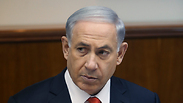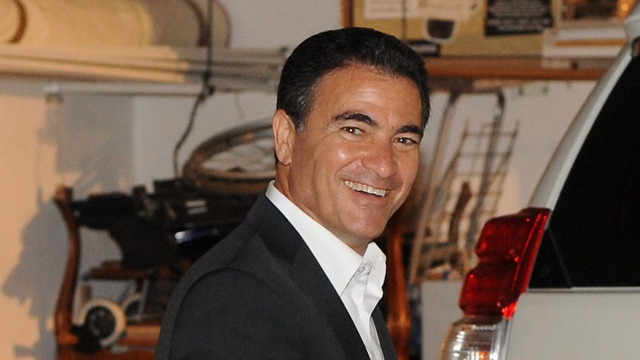
Netanyahu did not consult national security advisor on Congress speech
Like Obama, Mossad veteran Yossi Cohen was in the dark about Boehner's invitation for Netanyahu to address Congress on Iran nuclear negotiations.
Prime Minister Benjamin Netanyahu's decision to address Congress on Iran's nuclear program was made without consulting his own national security advisor, Yossi Cohen.
Like US President Barack Obama and his senior aides, Cohen was kept in the dark about the invitation extended by House Speaker John Boehner to Netanyahu to address a joint session of Congress on March 3.
Related articles:
- Netanyahu's Congress speech to be vetted for election propaganda
- Unwelcome mat: White House tries to counter Netanyahu visit
- Expect US backlash from Netanyahu's Congress speech, experts warn
- Israel could pay the price for Netanyahu's Congress speech
The invitation was orchestrated by Boehner and Israeli Ambassador to the US Ron Dermer, but was not discussed thoroughly by a broader forum in Jerusalem. According to well-informed sources, just like the US administration, Cohen learned about Netanyahu's plans only a short while before Boehner's public announcement of the scheduled speech.
Cohen, a 30-year veteran of the Mossad spy agency, was appointed to his post by Netanyahu in 2013. According to the law governing the responsibilities of the National Security Council and its head, Cohen's job includes providing advice to the prime minister and his government on Israel's strategic relationships.
Many of the outspoken critics against Netanyahu's decision to accept the invitation contend that it damages Israel's strategic ties with the United States.
But despite widely publicized calls from senators, American Jewish leaders, Israeli diplomats and politicians, to cancel or postpone the speech, the prime minister, in the throes of a tough election campaign, refuses to backtrack. He argues that the importance of doing all he can to prevent a bad deal with Iran that would endanger his country's future justifies the controversy.
In recent weeks, the crisis between Jerusalem and Washington has escalated. Obama announced he would not meet with Netanyahu since his visit to Washington comes just two weeks before the election in Israel and he does not want to appear to be interfering in internal Israeli politics.
The administration has also been limiting the scope of the information it is sharing with Israel regarding the negotiations between Iran and the six world powers.
Against the backdrop of the crisis, Cohen met in Washington last week with Undersecretary of State for Political Affairs Wendy Sherman, as well as his American counterpart, National Security Advisor Susan Rice. In an attempt to diffuse some of the tensions, Secretary of State John Kerry dropped in on one of the meetings with Cohen.
Dermer, a former close aide to Netanyahu, said in an interview with The Atlantic last month that Boehner’s office "initially reached out to me regarding the idea of the prime minister giving a speech less than two weeks before an official invitation was sent."
Boehner himself has confessed that he had neither consulted nor informed the White House before inviting Netanyahu and that he asked Dermer not to inform the Obama administration to avoid "interference" on the part of an administration which, he said, was openly hostile to Netanyahu.
Boehner’s office informed the administration about the plans about two hours before the invitation was made public.
The prime minister's office declined to comment about Cohen not being in the loop.
This article originally appeared on i24 News











